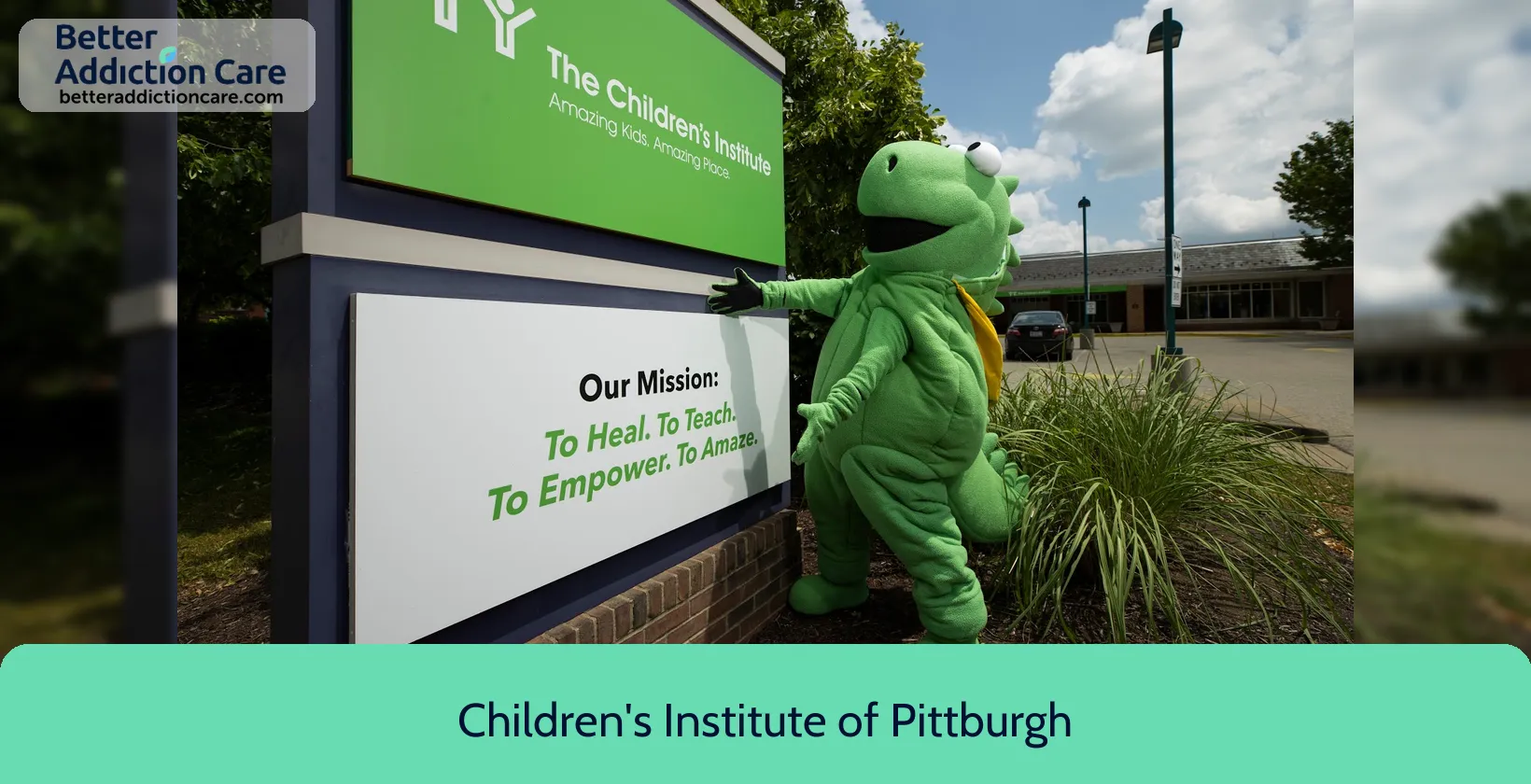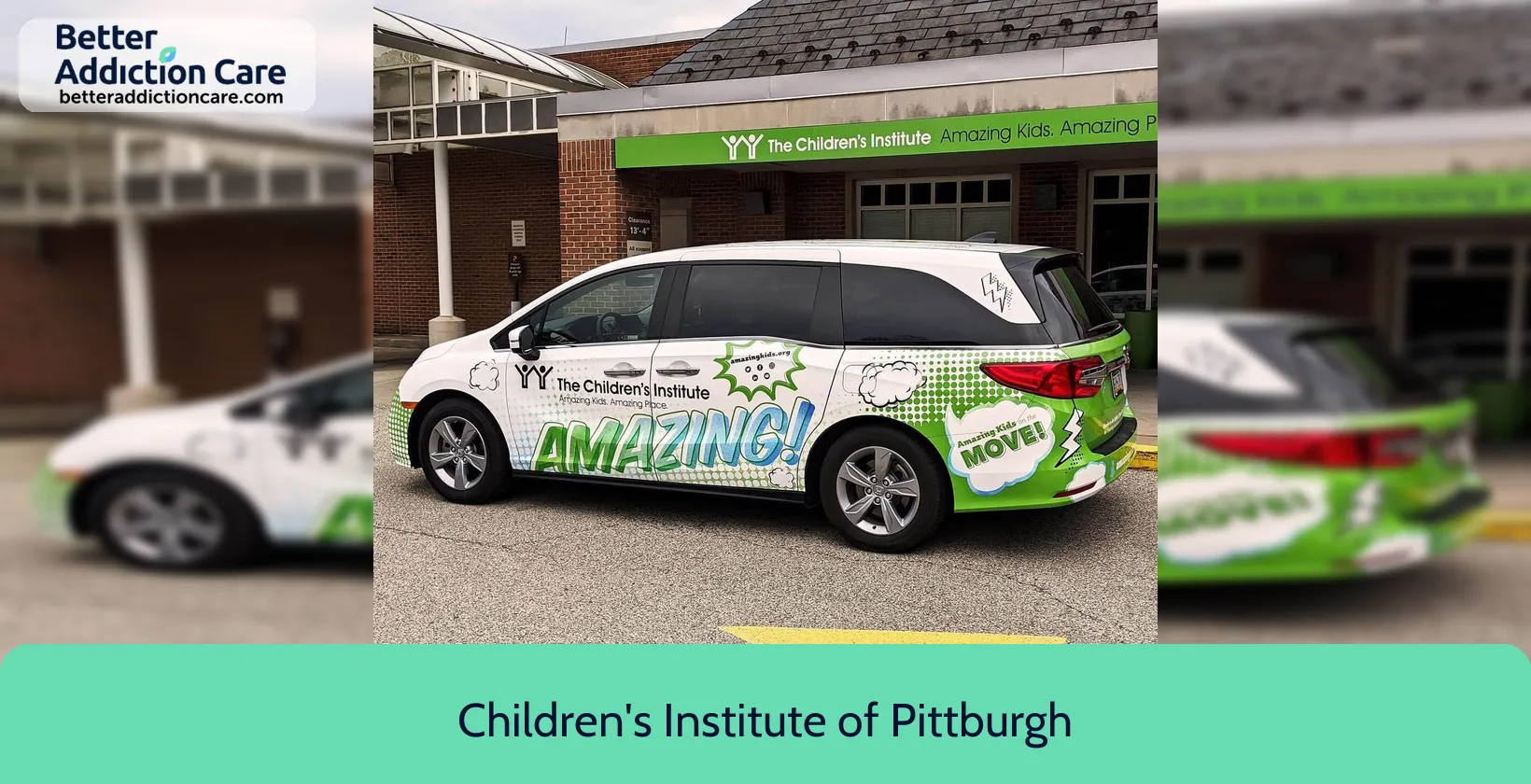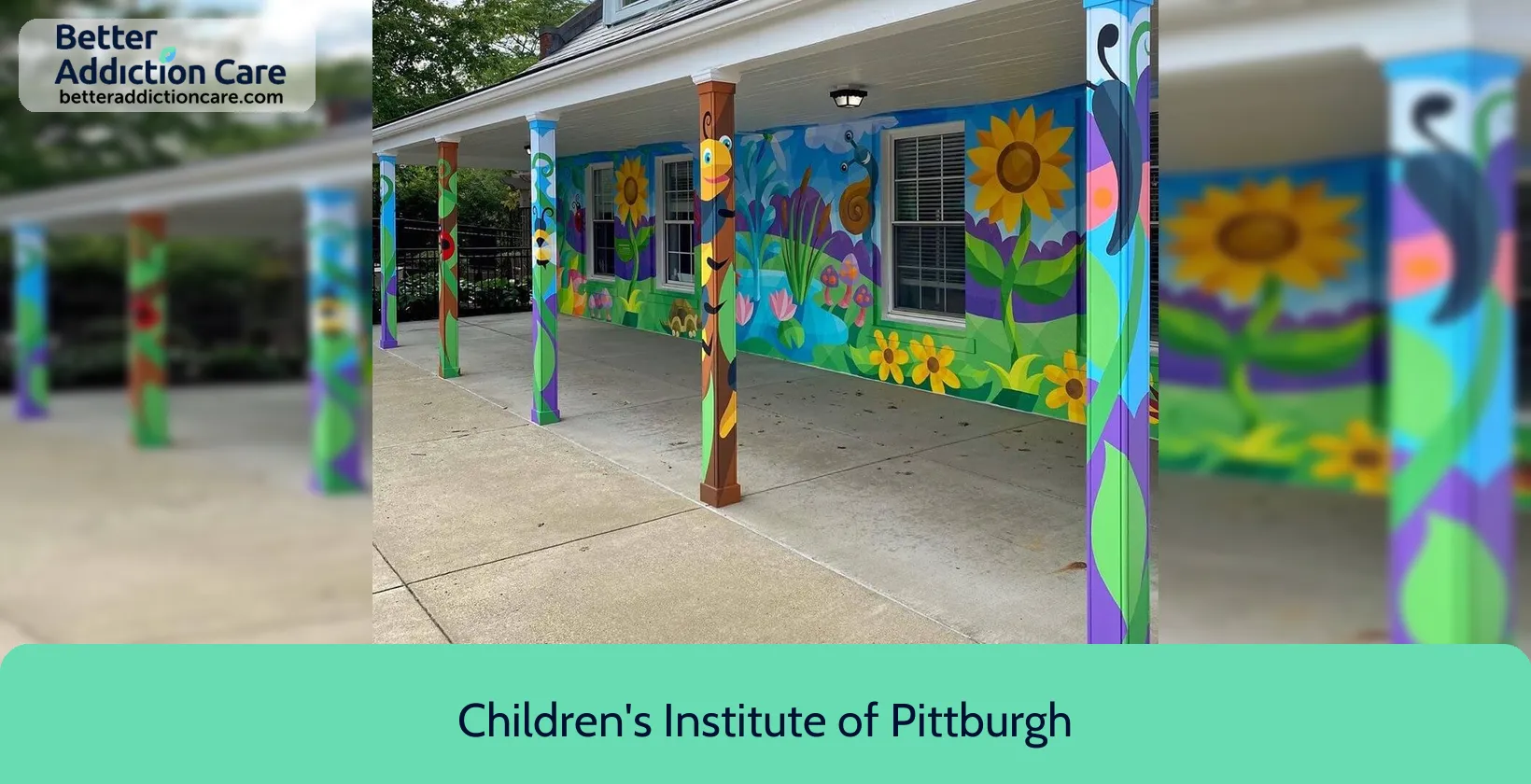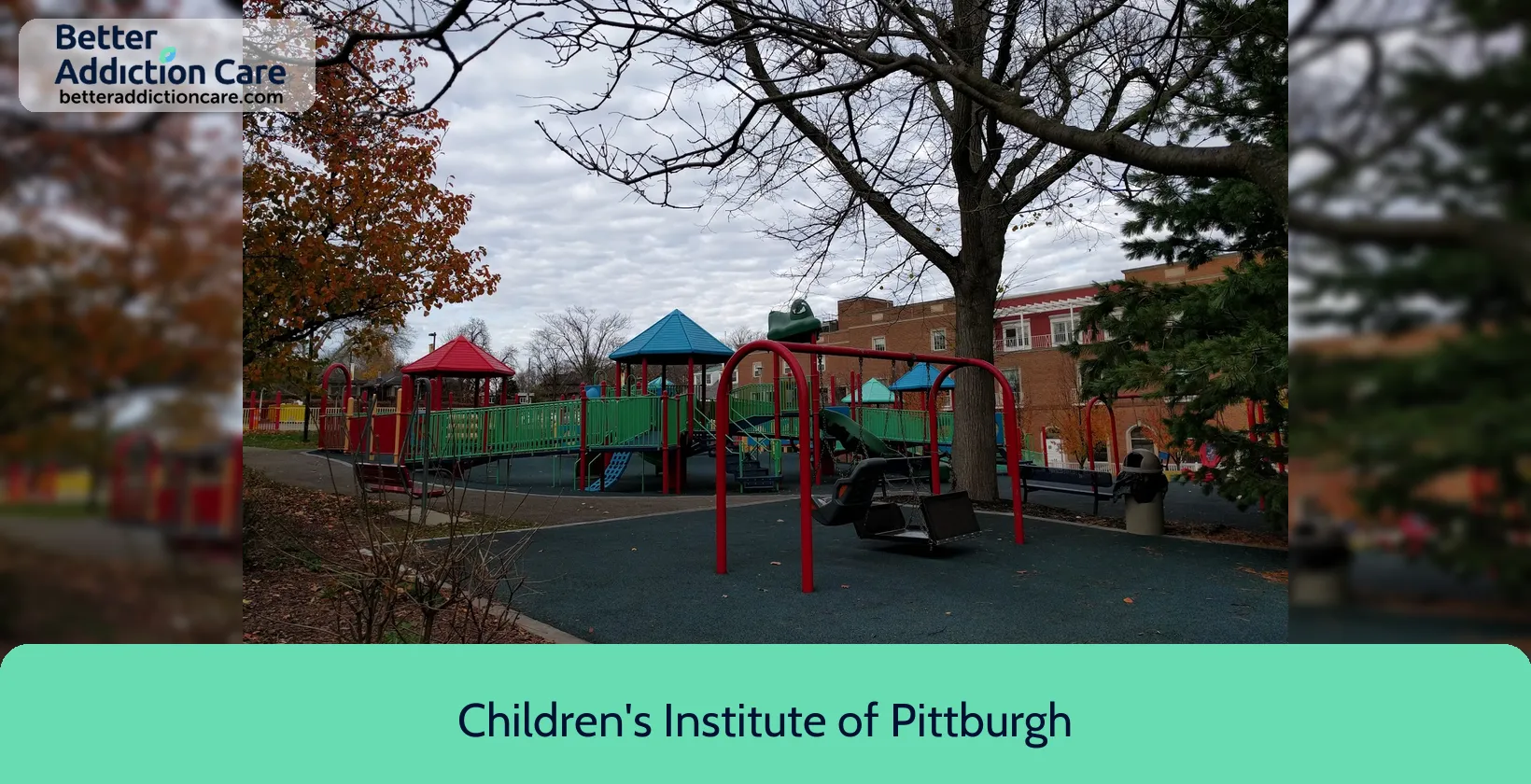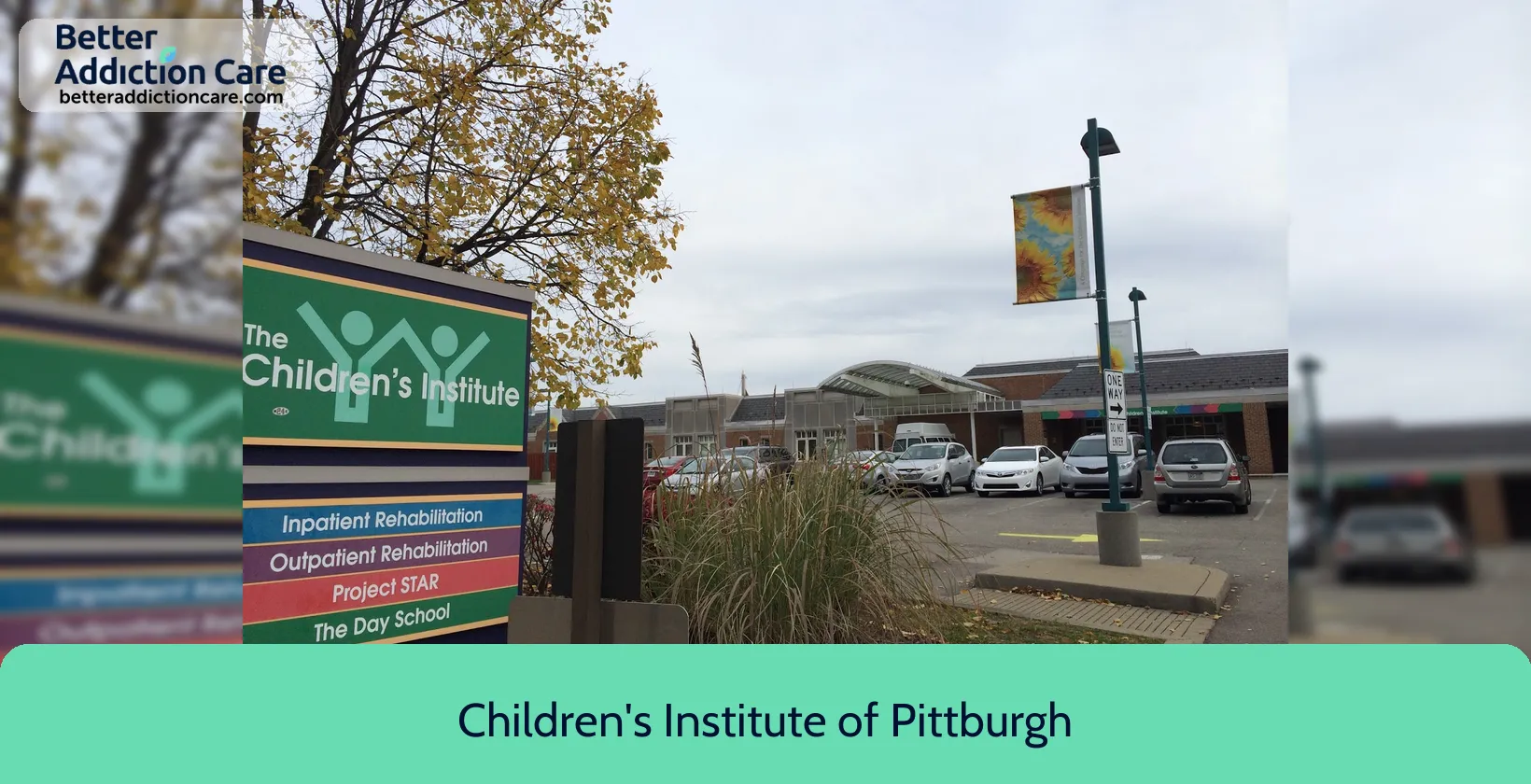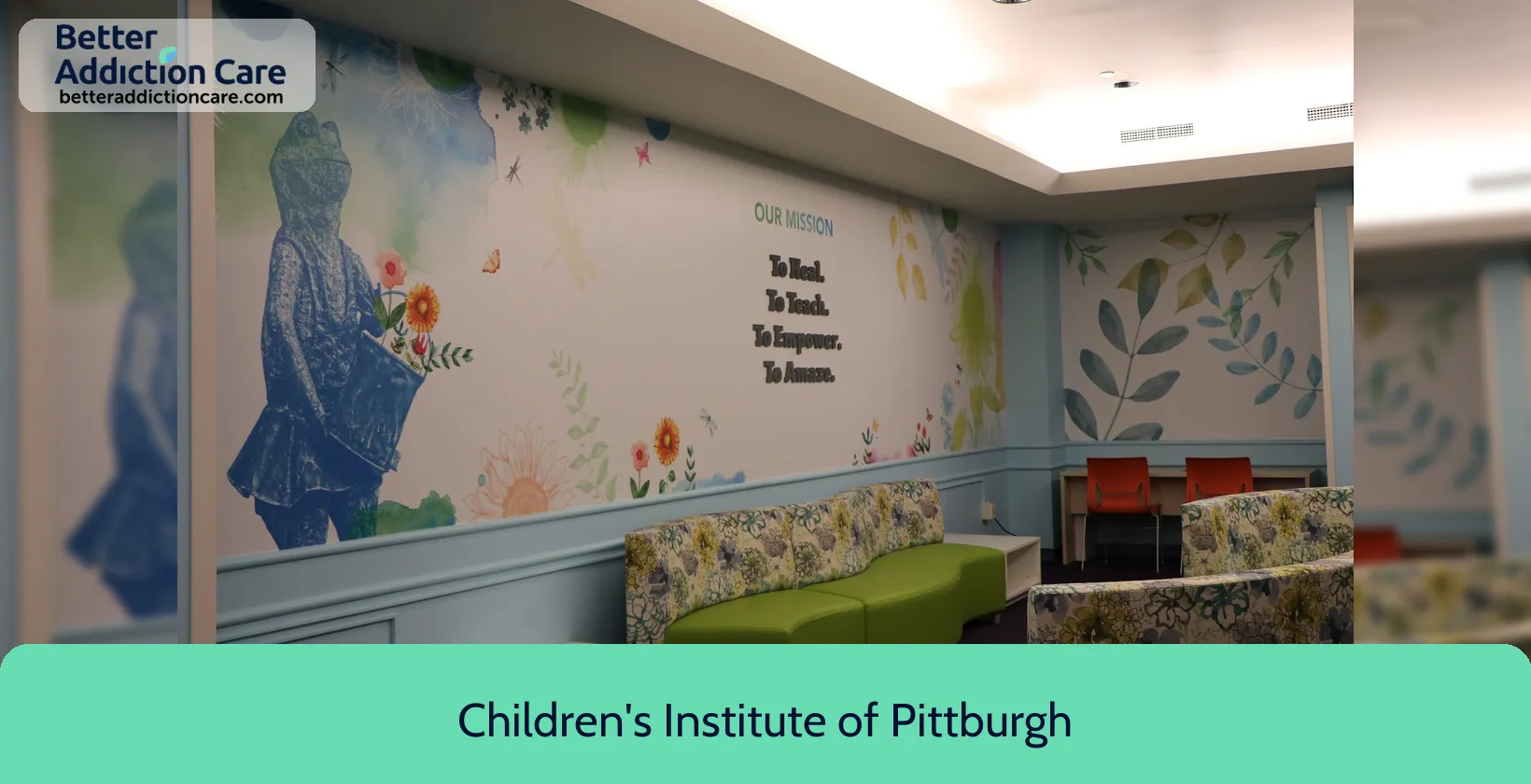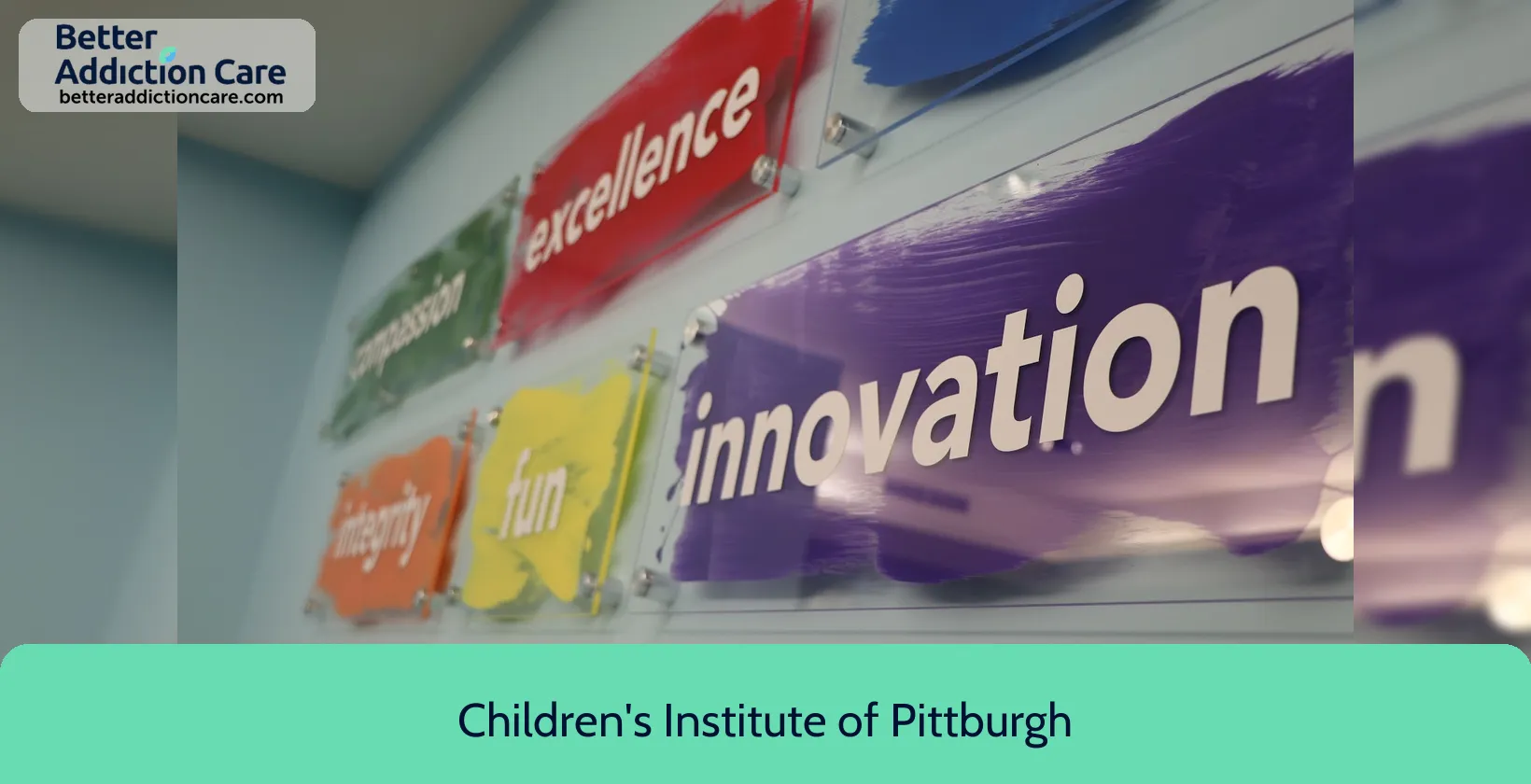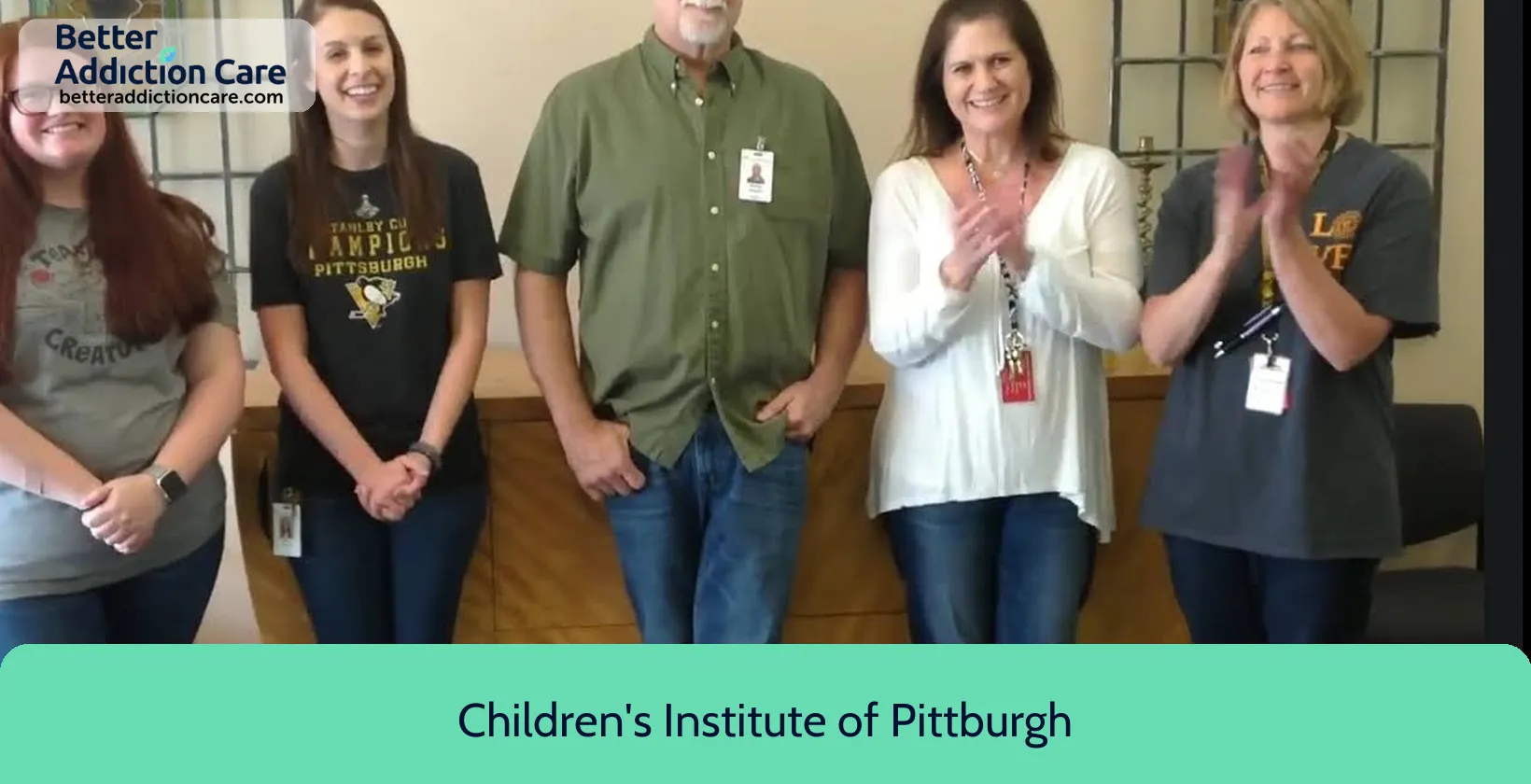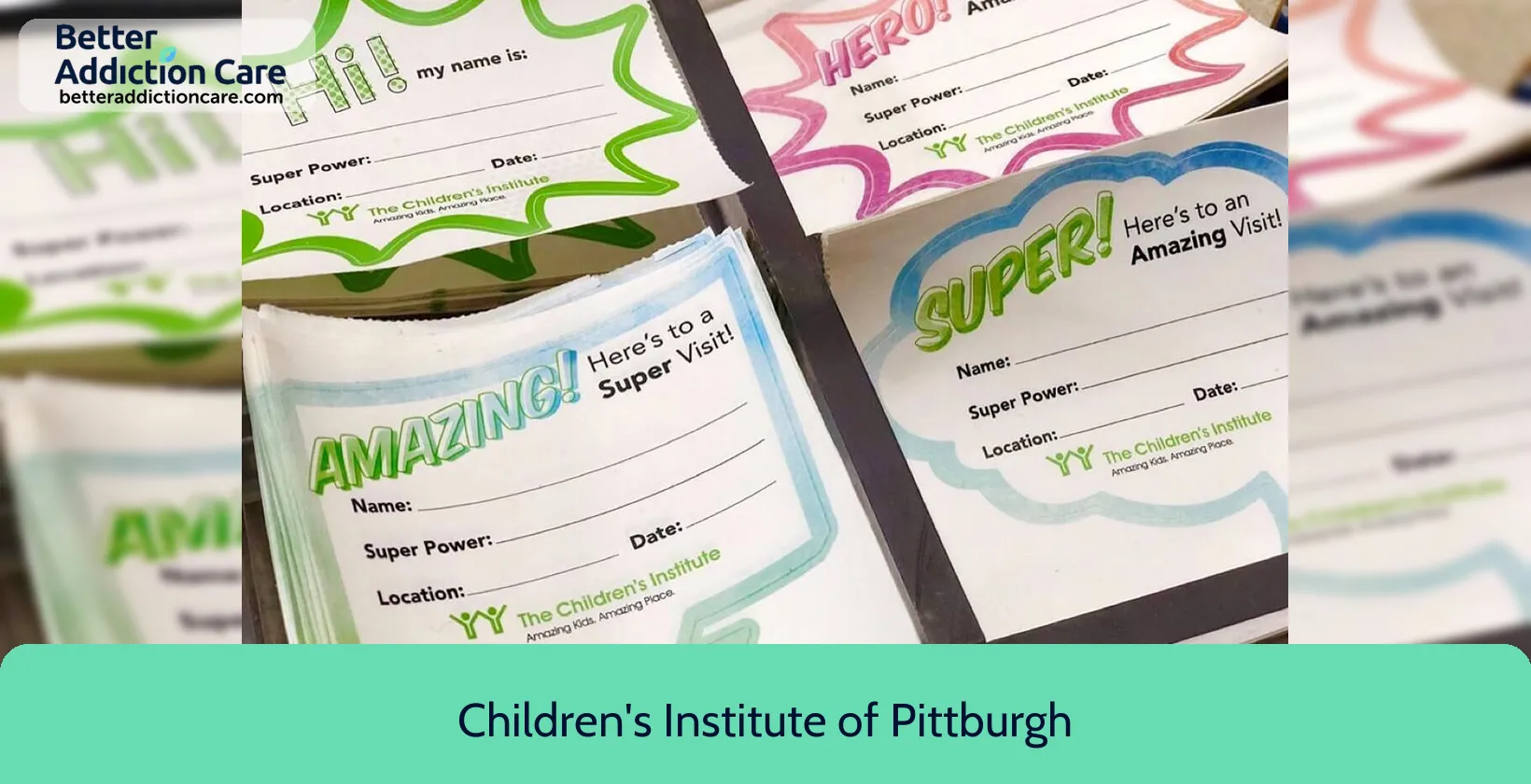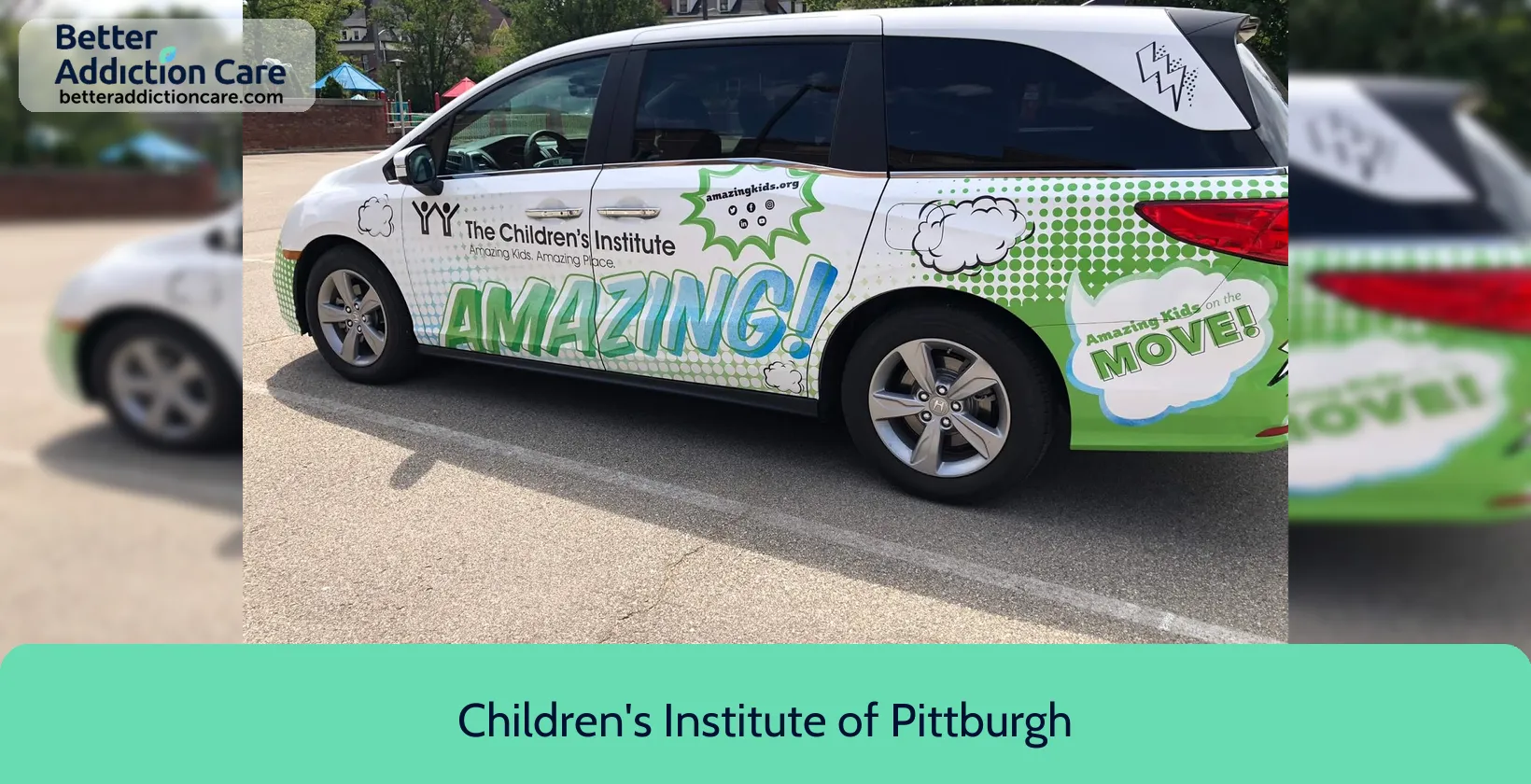Children's Institute of Pittburgh
Overview
Children's Institute of Pittburgh is a mental health treatment center for people seeking treatment near Allegheny County. As part of their treatment modalities for recovery, Children's Institute of Pittburgh provides couples/family therapy, group counseling, and cognitive behavioral therapy during treatment. Children's Institute of Pittburgh is located in Pittsburgh, Pennsylvania, accepting cash or self-payment for treatment.
Children's Institute of Pittburgh at a Glance
Payment Options
- Cash or self-payment
- Medicaid
- State-financed health insurance plan other than Medicaid
- Private health insurance
- Federal military insurance (e.g., TRICARE)
Assessments
- Screening for tobacco use
- Comprehensive mental health assessment
Age Groups
- Children/adolescents
- Young adults
- Seniors
Ancillary Services
- Family psychoeducation
Highlights About Children's Institute of Pittburgh
6.68/10
With an overall rating of 6.68/10, this facility has following balanced range of services. Alcohol Rehabilitation: 8.00/10, Drug Rehab and Detox: 6.00/10, Insurance and Payments: 6.00/10, Treatment Options: 6.73/10.-
Alcohol Rehabilitation 8.00
-
Treatment Options 6.73
-
Drug Rehab and Detox 6.00
-
Insurance and Payments 6.00
Treatment At Children's Institute of Pittburgh
Treatment Conditions
- Mental health treatment
Care Levels
- Outpatient
Treatment Modalities
- Couples/family therapy
- Group counseling
- Cognitive behavioral therapy
- Dialectical behavior therapy
- Activity therapy
Contact Information
Read our Most Recent Article About Drug Addiction
DISCLAIMER: The facility name, logo and brand are the property and registered trademarks of Children's Institute of Pittburgh, and are being used for identification and informational purposes only. Use of these names, logos and brands shall not imply endorsement. BetterAddictionCare.com is not affiliated with or sponsored by Children's Institute of Pittburgh.
